


















Transferring skills gained during a previous career to running a shop




















Transferring skills gained during a previous career to running a shop










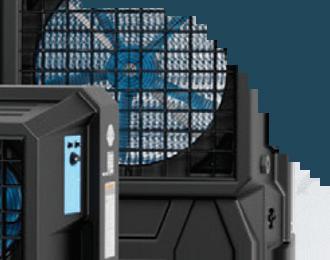














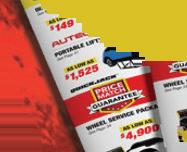









































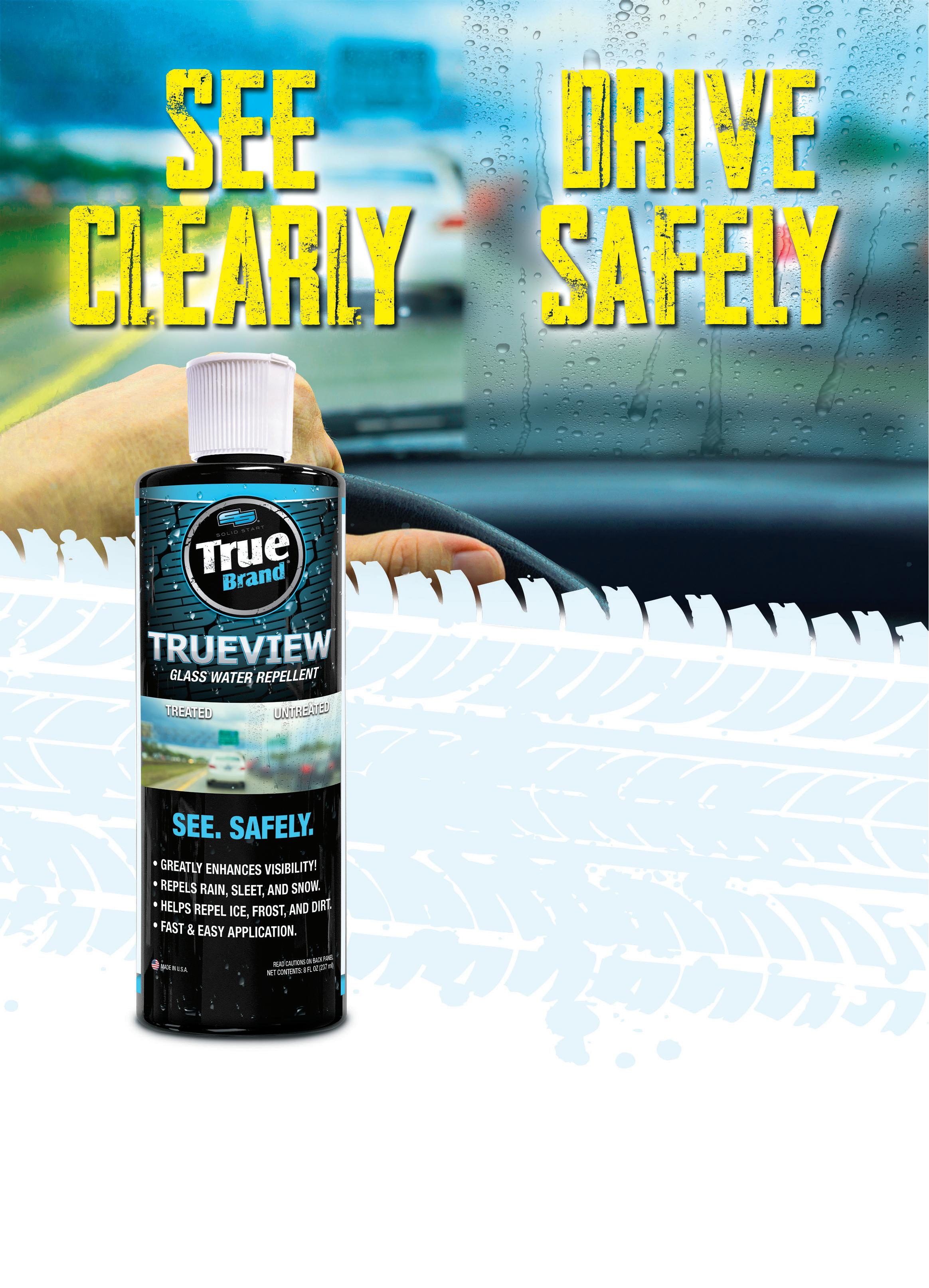


True Brand® TRUEVIEW® GLASS WATER REPELLENT is engineered with TrueRepel Technology to create a super-slick invisible shield on glass surfaces that repels rain, sleet, and snow on contact and greatly improves wet weather visibility for a safer, clearer, and cleaner driving experience. Our TrueRepel Technology also aids in easy removal of ice, frost, salt, dirt, mud, and bugs.
• Greatly Enhances Visibility! • Repels Rain, Sleet, and Snow. • Helps Repel Ice, Frost, and Dirt. • Fast and Easy Application.









EDITORIAL DIRECTOR Chris Jones
EDITOR Hanna Bubser
ASSISTANT EDITOR Kacey Frederick CONTRIBUTING WRITERS
Adam Tatum, Scott Hempy, Emily Kline, Enid Burns, Peter Suciu
Lenny Saucier, DIRECTOR OF RETAIL TRAINING, FULLSPEED AUTOMOTIVE
Pete Frey, OPERATOR, TAKE 5 OIL CHANGE
Adam Tatum, DIRECTOR OF OPERATIONS, VIRGINIA GROUP
Bill Floyd, OPERATOR, LUCAS OIL CENTERS
PUBLISHER Greg Smith gsmith@endeavorb2b.com
ASSOCIATE PUBLISHER Andrew Johnson ajohnson@endeavorb2b.com
ASSOCIATE SALES DIRECTOR Mattie Gorman-Greuel mgorman@endeavorb2b.com
DIRECTOR OF BUSINESS DEVELOPMENT Cortni Jones cjones@endeavorb2b.com
ACCOUNT EXECUTIVES
Diane Braden dbraden@endeavorb2b.com
Marianne Dyal mdyal@endeavorb2b.com
Chad Hjellming chjellming@endeavorb2b.com
Lisa Mend lmend@endeavorb2b.com
Martha Severson mseverson@endeavorb2b.com


‘Oilympics’
Lube in DeLand, Florida
Using retirement time as the starting point for shop life.
HANNA BUBSER
How Corrine Hudson of Kwik Kar Marsh in Carrollton, Texas, got to where she is today.
BY KACEY FREDERICK
Keep it Classic Rick Rivera had already been dedicated to the Classic Lube name for years when he took over the DeLand, Florida, shop in 2020.
a quick pace
Continuing the conversation on operational challenges

In spite of discounts and lower prices, new vehicle sales in the U.S. saw minimal growth in the second quarter, reports the Associated Press.
Sales were up 0.1% from a year ago, with prices still not falling enough to meet consumer needs. The recent cyberattack on dealer software also contributed to sales slowing down at the end of June, impacting automakers such as General Motors, which now estimates some of its deliveries to be pushed to the third quarter. Bigger pickups and SUVs are spending the most time sitting on dealership lots, with automakers having a focus on producing higher-profit vehicles.
But consumers are more interested in lower-cost vehicles like compact sedans, which have been in shorter supply.
“You’re seeing people search more and more for affordable vehicles. You’re seeing people searching for under $30K,” said Kevin Roberts, director of analytics at CarGurus.

Head online to check out NOLN’s library of podcast interviews. Hear from quick lube leaders about new strategies, service stories, and innovative operations that push the industry forward.
Listen to all the episodes and subscribe at: noln.net/podcasts.

Have you subscribed to the newsletter? NOLN will send the latest industry news, strategies and profiles straight to your inbox.
Sign up at noln.net/subscribe





Improve engine performance and fuel economy, fight everyday wear and tear and help reduce emissions. API-licensed oils display an API certification mark to signify the highest performing oils.
To

The bright orange foam and bubble gum fragrance turn your car wash into a fun experience, while the micronized carnauba formula delivers proven shine and protection. From pre-soaks to protectants, and everything in between, we’re perfecting the science of shine.



CAR APPEARANCE PRODUCTS

There is power in numbers. For some, strength takes its form in one shop. For others, strength is found in multiple locations. Both avenues have value, but which avenue is the more popular choice?
According to respondents of the 2024 NOLN Operator Survey, most shop networks consist of a single shop with two shops trailing a significant distance behind in second. However, respondents were represented in all the categories included in the survey questionnaire.
Interested in seeing how other aspects of shop operations stack up across the industry? The all-new
Mike Baden, owner of a Meineke in Indian Land, South Carolina, saw an opportunity and went for it
BY KACEY FREDERICK

FOR MANY IN THE QUICK LUBE industry, electric vehicles may be something they assume is inherently excluded from their business. But with an overwhelming push for more drivers to go electric—and many doing so—some service providers are wanting to get ahead of the curve.
Mike Baden is the owner of the first ever Meineke store to expand its services to EVs and hybrids. After
branding the store as as Meineke EV, Baden has helped launch a project that several other franchisees are eager to get in on.
While some still doubt whether there may be a space for EVs in quick auto maintenance, Baden’s journey shows that the time is coming for more service providers to assert room for themselves within the EV space.
Baden was an early adopter of EVs. His interest began while working as a tech at a Ferrari dealership, around the time the Tesla Roadster was released.
“It just happened to be one day that one of the Tesla Roadsters came through. It was in transit, and we got to see it,” tells Baden. “It was like, ‘Wow, if this guy ever figures this really out, this is going to be a game changer.’”
The guy Baden refers to is Tesla CEO Elon Musk, and as the automaker unveiled plans for affordable EVs, Baden saw something that he thought would change the landscape of the auto industry.
Before long, Baden became a Tesla owner himself. Being a technician, his first instinct was none other than to take it apart and back together again, looking at the car through an aftermarket lens. He found that it shared several components with gas-powered cars that would require the same maintenance it ever has, such as wiper blades, tires, air conditioning, and brakes.
He went beyond examining his own car and enrolled in an EV program at Weber State University of Ogden, Utah. While Baden was familiar with how EVs operate, the program offered him a look into a wide span of makes, models, and even hybrid vehicles. He describes it as the best education he’s received in the automotive industry.
Baden completed the course and began to toy with the idea of owning his own shop. He learned that one of his neighbors worked for Meineke corporate, and over dinner discussed more details about the company, leading to him purchasing his current franchise 11 years ago.
Baden’s affinity for electric vehicles did not dim upon becoming a shop

owner, but rather only grew. Though others haven’t shared his same feelings, he sees EVs as an opportunity for growth.
“I can honestly say I was the guy that was wearing the Tesla and SpaceX T-shirts to all of our conventions and meetings, and everybody was kind of laughing at me, thinking that I was a huge advocate for electric vehicles when our business is based off internal combustion engines,” recalls Baden. “And I just said, ‘It’s here, guys. It’s fine if nobody else wants to do it, but I’m going to do it.’”
The move just made sense for Baden. With Indian Land being only around 30 minutes out from Charlotte, North Carolina, the area is relatively affluent. It felt as if every fifth car Baden saw was an EV or

hybrid, leading him to the desire to expand his services.
Until this year, EV and hybrid service has been uncharted waters for Meineke. They needed someone like Baden—a passionate EV owner himself, with training specifically in servicing them—to help lead the way. When Baden first presented the idea for EV service to Meineke, they saw he was the right fit to launch such an endeavor.
Since then, Indian Land has set a standard of success for the newly launched brand, and as of now, there are already 10 more franchise

Nearly half the cars on the road in the US are Japanese, and a vast majority of those come from the factory with Idemitsu engine oils, transmission fluids, or PAG oils. For 110 years, Idemitsu has been the go-to source for the most technically advanced, high-performance fluids on the market. Give your customers the OE performance and quality of Idemitsu lubricants.
locations looking to join and expand their services as well.
Though the bulk of Baden’s techs didn’t have much interest in getting trained in EV work, one young, eagerto-learn tech was all in for the ride. Austin Johnson is a 20-year-old who’s been with the Indian Land Meineke for three years now, and since day one, Baden’s passion for EVs has rubbed off on him. When Johnson wasn’t researching EVs online, he was asking Baden every question he had about them. It became clear to Baden that the young man would be his designated EV technician.
“I took him out for a ride in my Tesla, and I let him drive it,” remembers Baden. “After he went on a 30-minute test drive, when he came back, that was it for him. He was hooked.”



Idemitsu is the official OE supplier of engine oils and transmission fluids to leading Japanese vehicle manufacturers such as:
Baden had Johnson receive the same training he did from Weber State University, making him a certified EV technician. With the launch of Meineke EV, Johnson has been Baden’s right-hand man as they see more EVs and hybrids rolling


through the shop–sometimes up to seven or 10 each week.
Besides Baden, Johnson, and another tech who helps with tire rotations and wiper blade replacements, it’s just the three of them who perform work on EVs and hybrids



at the shop. Most of the older techs haven’t been interested in working with EVs, but since Meineke EV was launched, that’s begun to change. Techs that were initially dismissive of the change have now started to ask their own questions as they see more gas-powered cars convert to hybrid and electric.
















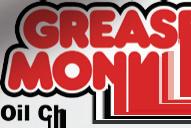





Baden’s older techs are far from the only ones who share skepticism about EVs. Despite more automakers focusing on EVs in the face of tightening emissions standards, it’s not a conversation Baden sees many in the automotive service industry having, even though he sees adapting to EVs as essential for survival.









At AutoCenter Sales, we specialize in selling Automotive Service Shops. With over 2,000 shops sold, we have the expertise to guide you in achieving successful results.
Our team takes immense pride in the work we do, assisting business owners of all sizes. Whether you own a single unit or large group spanning multiple states, we’re here for you.
At AutoCenter Sales, we don’t just facilitate transactions - we build relationships. Our commitment to your success extends beyond the sale, as we offer post-sale support and advice to ensure you thrive, whatever your future goals.
Contact us today and experience the AutoCenter Sales difference.
For quick maintenance shops, there are many opportunities to retain business, regardless of a gas or electric-powered customer base, as Baden has proven. One example of EV quick maintenance he provides are battery swap stations: a concept that has recently gained traction in China that simply swaps out EV batteries in a matter of minutes, eliminating the need to stop at a charging station.
Though EVs may not be coming in as frequently for service appointments, the average repair orders a shop sees will increase due to the complexity of working with EVs. Additionally, Baden is in a particularly advantageous position, having preemptively asserted himself as the non-dealership option for EV owners in the area. Some of his EV clientele come from over an hour away just to have their vehicles serviced in his shop. Many still doubt whether it’s worthwhile to expand their services to include EVs and hybrids. Factors may play a role in that decision, but Baden cautions shop owners to not turn a blind eye to what he considers an inevitable change on the horizon.
CHRIS JONES TO EDITORIAL DIRECTOR OF ITS VEHICLE REPAIR GROUP
Endeavor Business Media, the parent company of National Oil and Lube News, is pleased to announce the promotion of Chris Jones to editorial director for the Vehicle Repair Group, the nation’s leading business management and technical publications group for the automotive industry. Jones will oversee editorial strategy and content development for the group’s renowned publications, including Ratchet+Wrench, FenderBender, ABRN, Motor Age, NOLN, PTEN, Professional Distributor, Modern Tire Dealer, and Aftermarket Business World in his new role.
“We are excited to promote Chris to the position of editorial director for the Endeavor Vehicle Repair Group,” said Chris Messer, vice president/group publisher of Endeavor Business Media’s Vehicle Repair Group. “Chris has consistently demonstrated exceptional knowledge and leadership in the automotive industry, and we are confident that his fresh perspectives will drive our publications to new heights. His ability to innovate and connect with our audience is unparalleled, and we look forward to the future under his editorial leadership.”
Jones has been an integral part of Endeavor’s Vehicle Repair Group, previously working as an editorial leader for automotive aftermarket publications like Ratchet+Wrench. He began his media career as a sports writer, where he honed his skills in journalism and content creation. He is excited to continue connecting automotive professionals through Endeavor’s publications and providing a platform for excellence in the industry.
Reflecting on his promotion, Jones stated, “There is an energy
and excitement within the Endeavor Vehicle Repair Group that matches no professional team I’ve ever been part of. That was evident from day one and continues to be the case. I am excited to roll up my sleeves and serve as its next group editorial director.”
Jones’ promotion marks a new chapter for the Vehicle Repair Group. Under his leadership, the group aims to enhance its editorial offerings, expand its digital presence, and remain a trusted resource for automotive industry professionals.
Endeavor Business Media is confident that Chris Jones’s promotion will further solidify the Vehicle Repair Group’s position as a leader in automotive industry publications. His passion for the industry and commitment to quality journalism will drive the group’s continued success.
Costa Kapothanasis, CEO of Costa Oil, has completed a buyout of Costa Franchising LLC shareholders, according to a press release.
Costa Franchising LLC is the franchising arm of Costa Oil – 10 Minute Oil Change. Through this buyout, Kapothanasis now has full ownership over the Costa Oil brand, which includes 50+ store locations, Costa Oil Performance Filtration, and Costa Motor Oils.
Michael Abdy is the former majority shareholder of Costa Franchising LLC through his investment company ABACO.
“I am pleased to see the company return to the hands of its original visionary. Costa’s leadership has always driven the brand’s success, and I am confident in the future under his full ownership,” Abdy said. “This transition represents a new chapter
for Costa Oil, one that promises continued innovation and excellence.”
The buyout process also involved Kapothanasis purchasing all interests from FranDevCo.
Under unified ownership from Kapothanasis, Costa Oil carves out its intentions for the future. Some of these are listed as an expanded market presence, new products and services, technology use that improves service delivery, environmental sustainability efforts, a continued emphasis on community, and the oil change-only model that Costa Oil – 10 Minute Oil Change is already known for.
“This acquisition is a significant milestone for Costa Oil. It allows us to streamline operations, enhance customer experience, and innovate more effectively,” Kapothanasis said. “We are excited about the future and remain committed to providing the highest quality service in the industry.”
Valvoline held its 30th annual Oilympics competition in June in the brand’s hometown of Lexington, Kentucky, where 117 technicians from across North America gathered to put their quick lube skills to the test.
The competition was first launched for Valvoline Instant Oil Change locations in the U.S., but has since expanded its reach to all of North America to include the Great Canadian Oil Change brand, according to a press release.
Participants are judged based on how well they perform Valvoline’s proprietary multi-step service process, called SuperPro, which begins the moment a customer pulls into the shop and finishes with waving them goodbye.
“The process is always evolving, it’s not static,” Chris Pence, a competing technician, told LEX 18. “If you’re static, you’re going to fall to the wayside.”
Teams compete locally, with the winners continuing to the international Oilympics. This year, 117 technicians comprised 39 different regional teams at the competition on June 11, with some even being treated to a tour of Valvoline’s headquarters.
Taking the podium as the U.S. gold medal winner was the Mountain East team, based locally in Lexington. The gold medal for the Great Canadian Oil Change brand went to the Great Frozen North team, based out of East Gwillimbury, Ontario. In addition to the title, both teams received a trophy and an award from Valvoline.

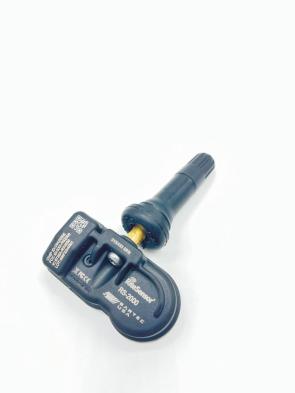
“When we see this event growing, it’s really a symbol of the growth we have had as a company,” reflected Valvoline Inc. President and CEO Lori Flees to LEX 18.
Oilstop Drive-Thru Oil Change has announced two new acquisitions in Washington state in a recent press release.
The brand has acquired a service center in Auburn, Washington, and another in Federal Way, expanding Oilstop’s outreach to the greater Seattle area.
This marks a total of three Oilstop locations in the state of Washington, as well as achieving a milestone of 30
stores nationwide.
“We are excited to extend our reach to serve guests in the communities of Auburn and Federal Way,” stated Oilstop CEO Scott Hempy.
“Our mission is to serve people with excellence, humbly, with a servant’s heart. Our team is ready to provide excellent service to our new guests in the Seattle area and we can’t wait to become a part of the community.”
Electric and hybrid vehicle drivers will soon be met with a new fee when they go to register their cars, reports NBC 5.
As part of a larger transportation bill signed into law by Governor Phil

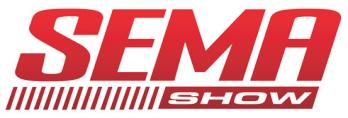




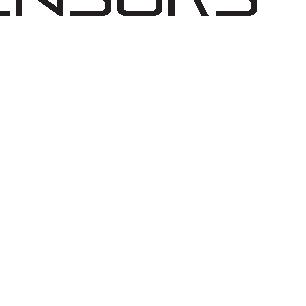



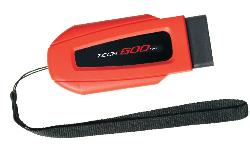
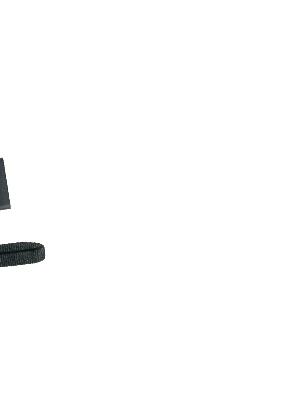
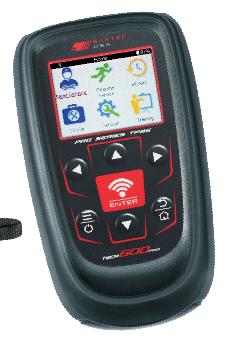







Scott, EV and hybrid drivers will face an additional charge when they go to register their vehicles in an effort to compensate for what they would usually pay through a gas tax.
For fully-electric vehicles, a oneyear registration will come with an additional $89 fee. For a two-year registration, that fee is raised to $178.
Plug-in hybrid vehicle registrations will see a lower fee of $44.50 for a one-year registration, and $89 for a two-year.
After the change takes effect on Jan. 1, 2025, it will bring Vermont an estimated $600,000 for fiscal year 2025, and $1.7 million in fiscal year 2026.
“I think it’s a user fee,” stated Scott. “I think everyone has to pay something so that we can keep our roads in good order, replace bridges. The infrastructure is important.”
In late June, ExxonMobil celebrated the 50th anniversary of Mobil 1 oil at its refinery in Beaumont, Texas, reports the Beaumont Enterprise.
Mobil 1 was first created at the facility in Beaumont in 1974, which remains the largest producer of Mobil 1 globally. Beaumont Lubricants Plant Manager Jose Diaz added that its longstanding presence in the community has been solidified by the line of generations it’s seen come through its doors to work there.
ExxonMobil Beaumont Public and Government Affairs contractor Olivia Malick noted that the 50th anni-












versary is an especially important milestone for the company. Earlier this month, Exxon brought in food, entertainment, and merch such as T-shirts and hats for employees in Beaumont as part of a celebration.
“This is the home of Mobil 1, but we ship out to distribution centers all over the United States, and that Mobil 1 goes all around the world,” said ExxonMobil North America
Lubricants Marketing Manager Jennifer Durgin. “It all happens right here in Beaumont.”
















OPERATOR: RICK RIVERA
LOCATION: DELAND, FLORIDA
STAFF SIZE: 5
SHOP SIZE: 3,500 SQUARE FEET
BY EMILY KLINE
PHOTOS BY OG
PHOTOGRAPHY AND VIDEO SERVICES
Like many, Rick Rivera, the current owner of Classic Lube, found his passion for cars at a young age. While helping one of his friend’s dads work on them, he developed skills that would later help him advance his career.
While in college, Rivera worked part-time as a quick lube technician at one of the four Classic Lube locations in Florida, and after graduating in 1998, he left Classic Lube to go work for Car Spa in Jacksonville, Florida.
A year into working at Car Spa, the owners of Classic Lube called him up and offered him the general manager position of all four of their locations. Twenty-one years later in 2020, the owners of Classic Lube sold off

all their locations and Rivera became the owner of the fourth located in DeLand.
One of the first things that Rivera did as the new owner of Classic Lube was revamp the branding.
“We got better-looking signs and changed the colors,” Rivera said. “I was tired of the safety yellow and red that was synonymous with every other quick lube shop. So instead of yellow, I use safety blue and then instead of red, I use gray. It’s just a fresher look.”
In addition to his new color scheme, Rivera also prides himself on the exceptional customer service
that his team provides. With three oil change bays and one repair bay, his team can do more than just quick lube services.
“We’ve all been around cars long enough that we do more than just the job you’re paying us for,” Rivera said. “We do brakes, belts, hoses, suspension, and radiators, we do a lot of repair work. We service cars. Rather than only checking the usual air filter, wiper blades, and tire pressure, we dig a little deeper. Whenever we see something, even if we might not have the right tools to fix it here, we will advise that they get it checked out.”
In addition to their quick lube offerings and service checks, Rivera and his team also install and fix breathalyzers.


lyzers for people with DUIs,” Rivera said. “As a result, most of those customers end up being regular customers as well. Because of the
extra work, we get an extra 30 or 40 changes a year, as well as life service.”

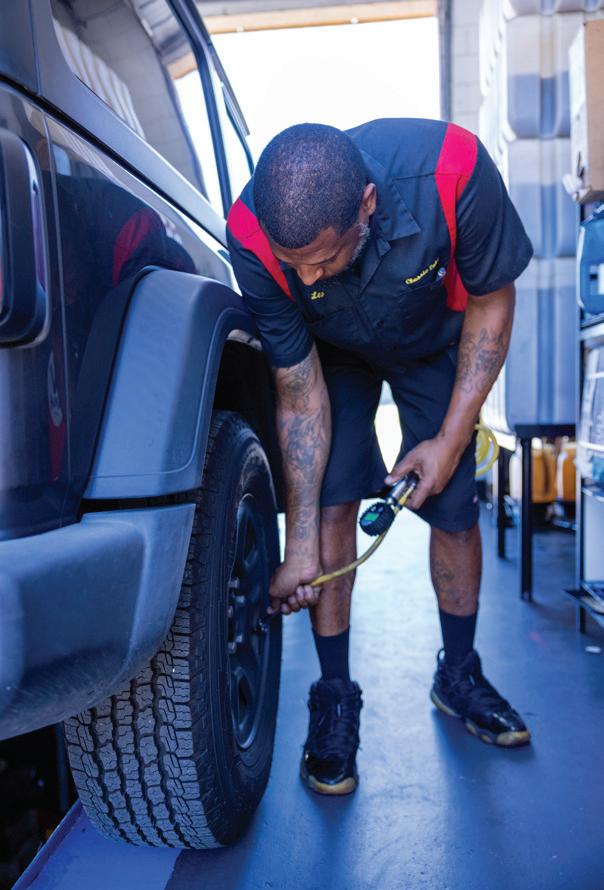

Customers who visit Classic Lube are guaranteed great customer service and can trust that their car will be fully serviced. They can leave knowing that any problems in their car were identified, and they can drive feeling safer.
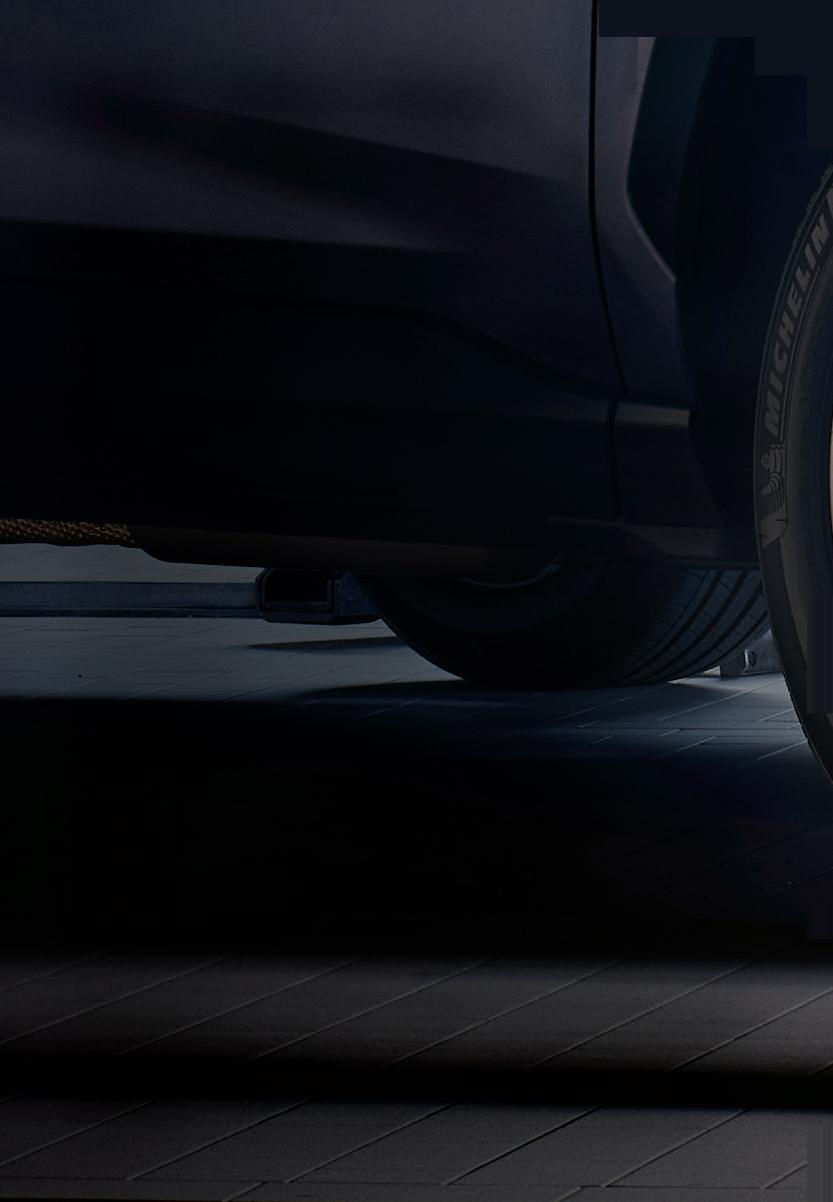
The handheld dispenser on the vacuum-style BG MVP2 connects to the coolant reservoir, so there's no need for messy hose connections. Technicians complete a cooling system service on all vehicle types with less effort saving time for your shop and customers.
Contact your BG Distributor today for a demonstration.











Scott Hempy leads the team at Oilstop Drive-Thru Oil Change and Happy’s Drive-Thru Car Wash. Oilstop and Happy’s are rapidly growing their footprint of oil change and express car wash locations across the West Coast, combining convenience with an outstanding emphasis on guest experience.
Prior to Oilstop & Happy’s, Scott was the founder and CEO at Filld, a SaaSbased software solution for last-mile oil and gas delivery companies. He was recognized as a member of the Forbes 30 Under 30 class of 2016 for starting Filld.
THE WORLD HAS CHANGED, AND SPEED OF service is now more important than ever. Consumers expect things to be faster today than they ever have. All of us have ordered something on Amazon Prime, probably as recently as this week. Twenty years ago, two-day shipping would have been hard to imagine. Now it’s what we expect.
Our packages arrive faster with Prime, our food arrives faster with DoorDash, and we can stream any show or movie we want to watch immediately on Netflix. Gone are the days of going to Blockbuster to pick out a movie. Even a two-hour movie feels long compared to the quick clips and videos of TikTok. With all of these changes in society, we have all been rewired to expect things faster.
In the quick lube industry, this expectation has put more pressure on operators to move quickly and to improve their service times. At Oilstop, we call this need for speed in our bays our “sense of urgency.” Our sense of urgency is the feeling in our service centers when our guests notice that our team is moving quickly to work on each vehicle.
Our team isn’t frantically rushing, skipping steps, or cutting corners. Instead, we are moving with a purpose and completing each step of our 33-Point Service process with urgency. Our goal is to ensure guests know we are moving quickly to serve them and to keep their bay time low.
The great thing about building a sense of urgency is it has benefits besides just delivering on your guest’s expectation of speed. Creating a sense of urgency in your bays will help reduce your bay time, open up more space to serve additional cars, and grow your car count. The impact of moving quickly scales throughout the day.
If your team saves two minutes per car by moving at a faster pace, the average quick lube
will free up 60 minutes of additional time every day. How many more cars could your team serve in that time? Not only does a sense of urgency in your store improve your guest experience, but it will also increase your car count.
So, how do you create a sense of urgency in your service center? At Oilstop we like to say, “Our managers make it happen.” Your leaders in the store are responsible for setting the expectation of urgency and holding that expectation with the team. Training a sense of urgency with your team involves teaching them to always be planning their next move.
If you know what you are going to start next once you complete your current task, you won’t delay in moving straight to it. Creating pa erns and workflows for your team to follow for each service will help develop a habit of the process over time, which will allow them to develop proficiency and ultimately allow them to move faster.
Oilstop’s founder Larry Dahl was famous for encouraging our team to “always work at an 80 car per day pace.” When each of our service center teams works like they are going to process 80 cars that day, it establishes a clear sense of urgency. Slower service centers often will naturally reduce their pace to match the sporadic car count through the day, instead of pushing out cars at their best possible bay times. Working at an 80 car per day pace, you are always ready to serve the next guest who arrives and every guest’s experience and perception of the speed of your service will be positive.
A sense of urgency is not about taking shortcuts; it’s about training your team to move more efficiently while performing tasks and in-between tasks. If we are to provide excellent service for our guests, we need to honor their time. Creating a model where your service center focuses on a sense of urgency will help your team adapt to meet the expectations of today’s consumers and help you grow your business.
Retirement from one career can segue into an opportunity with shop ownership
by Hanna Bubser


Follow Your Heart
The question of what to do upon retirement is a vast one, no matter what the career.
After years of dedicating oneself to an industry, there is an opportunity to take some well-earned time off or perhaps try something new.
Tom Tobin is a retired occupational therapist turned Grease Monkey franchisee, and Joe Marconi is a business development coach with Elite Worldwide and a former shop owner. Tobin shares with NOLN what drew him to shop ownership. Later, Marconi outlines what shop owners from outside the industry should know about leadership and success for their next-chapter career journeys.
After serving in the Army, Tom Tobin dove into the field of occupational therapy, where he practiced in total for almost 35 years and took a special interest in occupational medicine helping to, in his words, “prevent employees from becoming patients.”
He and another therapist started a private practice in 1998. After 20 years of growth and achievement within the private practice space, Tobin and his business partner were ready to retire. By the time they were fully retired in 2019, the company had 11 partners and around 2,400 employees across the country.
“I always loved occupational therapy because ... our motto was, ‘a focus on function,’ and so,

it looked at therapy not as the end goal, but that therapy was just integrated into helping people achieve what’s called activities of daily living,” Tobin says.
Around the time of Tobin’s retirement, his son Brandon graduated from a vocational school with a degree in automotive technology and mechanics. Tobin, a self-proclaimed “entrepreneur at heart” with a master’s degree in business administration, wanted to build something with his son.
He says the two of them spent a lot of time in prayer and researching what might be the right fit in the automotive franchise space. Culture was a big factor of consideration.
During his time in private practice, Tobin and his partner worked to establish a “positive conscious culture” that focused on honesty, integrity, and communication.
“Your leadership has to drive the culture,” Tobin says. “I always say that corporate cultures are like a garden: You can either plant the plants that you want and nurture them and kill the weeds (weeds are like gossip, etc.) or you can just let it grow wild. One way or the other, a corporate culture will develop. So, then you have to decide: Do you want to keep weeding, or do you want to grow a healthy one?”
When he and Brandon flew out to Colorado (where Grease Monkey’s parent company FullSpeed Automotive is headquartered) they were able to spend an entire day having conversations about the opportunity.
This experience stood out to Tobin because the interactions were genuine and Brandon, as a young person with goals in the industry, was included as an equal during the discussions. Tobin says they felt supported. It was an encouraging experience that led him to open a Grease Monkey franchise in Cibolo, Texas, in July 2021.
“It all is about culture and customer experience, not smoke and mirrors—legitimate,” Tobin says. “This is what we want you to experience because we want to change the way that oil change is being done.”
As much as Tobin admires the Grease Monkey brand, the now 25-year-old Brandon is who truly played the biggest role in Tobin opening the shop.

Tobin says Brandon has always had a passion for cars and helping people. From a young age, people would ask Brandon to look over their vehicles. Opening the shop helps Brandon continue to do the work he’s great at, and Tobin was happy to support it.
“No question, I would not be doing this if it wasn’t for Brandon and his passion for cars and our love for working together in that arena,” Tobin says. “I wouldn’t be a Grease Monkey franchisee but for that.”
It was a transition for Tobin to go from running a large company to overseeing a shop, but he’s been able to apply experiences from his healthcare career to a shop setting quite fluidly.
He says the basics of running a business— finances, marketing, and management—are leadership components that work across careers.
“The part that’s never easy but the most fruitful is the relationship building and changing culture and ... exceeding customer expectations,” Tobin says.
In his previous career, Tobin explains he was selling a form of prevention to business owners. He says he worked with people who were used
to a healthcare industry that constantly billed them, and that’s what he was selling against. Now, he’s working with preventative maintenance and car care in an industry that he notes is not always well trusted. But his career experience sets him up well for the challenge.
“So, you take that kind of a situation, and you think well, how could I do this differently? So, the preparation for what I’m doing now came from all of those bad experiences and bad relationships that industry had with healthcare,” Tobin says. “And now I just translate that into what are people’s expectations when they walk into an oil change place, and how can we change those expectations and reset the bar for them?”
He says the shop team focuses on educating (not selling) customers about what’s needed and what’s not, encouraging them to continue to keep that bar high wherever they get service done in the future. It comes down to making that person’s day better, despite what’s happening outside of the bay doors.
“I tell my guys, ‘Our guests pull up, and then they leave. And in that 20 minutes the bar is very low for success. Whatever is going on in their life when they pull up is still going on when they leave,’” Tobin says.

Tom Tobin is an International Franchise Association Franchisee of the Year Award winner, an honor he has shared with his family and team.
Tom Tobin, Grease Monkey franchisee in Cibolo, Texas, shares his considerations for those who are retiring from a career and are interested in opening a shop.
1. Be sure you can financially fail without destroying your retirement.
2. Fully research as much as possible and talk to as many people as you can (who) are successful, but also (understand) how and where they failed.
3. Understand all the risks you’ll be undertaking and understand the value of your franchise partners.
4. Be willing to say, “No,” and walk away (if) the risks are too great for you, regardless of what risks others are willing to take. I’m a “calculated risk taker” and entrepreneur.
5. Only do it if it’s meeting other aspects of your goals that are non-financial (building in your community, shared passions/joys, building a family heritage).
The importance of a solid communication approach is something Tobin learned about during his previous career.
“In my last life when we would walk in and speak to somebody in their cubicle, we would get on one knee, or we’d squat down so that we weren’t towering over the top of them,” Tobin shares as an example.
He says standing over someone creates an unwanted power dynamic, and by simply meeting the guest at their level it automatically neutralizes that interaction. It makes guests
comfortable, he says. It shows respect, which is something his team takes to heart. This inspires the kinds of compliments to the team that come up in Google reviews of the shop, Tobin says.
The recognition has even gone beyond that, as Tobin received a Franchisee of the Year award from the International Franchise Association earlier this year. It was an honor, Tobin says, especially when he thinks about the mentors he’s had along the way who have invested in him as a person.
He describes the Grease Monkey franchise system as family-like, making everyone feel welcome and supported. Tobin accepted the award with his wife Sherri and son Brandon, bringing the feeling full circle.
This stood out as something especially impactful to Tobin, who says that in his previous career any accolade that came was something he accepted by himself. Now, successes such as this one can be shared.
“Underlying all of that, to be blessed to be able to take it, receive it, as a family and on behalf of our crew who work really hard to make all that stuff happen ... a blessing is an understatement,” Tobin says.
What do U.S. Steel’s Andrew Carnegie and Charles M. Schwab have to do with auto shop ownership? They set an example of recognizing skills that stretch across industries, according to Joe Marconi.
Marconi explains how, in the 1800s, Andrew Carnegie, (the leader of U.S. Steel at the time) appointed Charles M. Schwab as president of the company. Schwab wasn’t hired because he
had experience in steel—he was hired for his people skills.
“That type of transferable skill—understanding people and employee management—(is) crucial to running a successful automotive repair shop,” Marconi says. “So, we gotta take a page from Charles Schwab and not worry too much about the technical aspects, but about the people aspects and finding out what the goals are of the individual because when you align the goals of the individual, you also align the goals of the company.”
Those soft skills are important. Marconi says successful shop owners prioritize their teams and develop leadership skills and people skills in conjunction.
“When you talk about leadership and personality, they’re almost one in the same,” Marconi says. “And if you think about it ... all of us could get better and can get better at leadership because leadership (is) essentially people skills like empathy, learning to look at someone else’s perspective, (and) humility. Those are all people skills—personality traits—so, they’re one in the same.”
What kinds of personalities or professions transfer well into a next-chapter career of shop ownership?
“I don’t think industry matters as much as the person,” Marconi says.
He says, “great leaders come from all walks of life,” and in the automotive aftermarket, there is excitement to be found in how each day is different. It can be a great fit for the right person who is retiring from elsewhere.
“I think it lends itself really well to someone who really wants to not fully retire but get their juices flowing in such a different area,” Marconi says.
For example, people who are retired from a different career field may have an interest in shop ownership because they have a passion for cars that they want to do something with, Marconi explains.
“(There are) so many opportunities out there, after their No. 1 career is over, to follow their passion,” Marconi says.
If they have a background in management, operations, or finance—all the better. Marconi says there are situations where a shop that’s been around for decades may have an owner who is looking to retire themselves—which opens the door for someone else to step in.
“The transition to take over—whether a quick lube or a small repair shop—I think it’s very lucrative at this point,” Marconi says.
That doesn’t mean there aren’t challenges. Marconi says there’s a lot to learn when someone is getting into the field for the first time, as may be the case for someone who is retired.
To gain knowledge, he emphasizes subscribing to trade publications, networking with strategic partners, learning about all the various roles in a shop, and potentially enlisting a mentor or business coach.
While it may be overwhelming at first, Marconi says due diligence will set someone up for success. He’s a staunch believer in lifelong learning and encourages newly minted shop owners to look into industry training opportunities from technical to management, as well as spend time with books about leadership from the likes of John Maxwell and Dale Carnegie.
“But when it comes down to it, like I always said when I was in business, ‘We work on all makes and models, but we really what we really specialize in is people,’” Marconi says. “So, I think that that’s what it takes.”
Marconi says the COVID-19 pandemic proved the resiliency of the automotive aftermarket industry. People are understandably interested in exploring how viable it is in their own lives, including those who have retired from other careers as well as young people.
He’s excited about the notion of diversifying the aftermarket and seeing how people run it like a “true business.”
He says as we look ahead in the next five, 10, or 15 years—an already amazing industry has the chance to become even more amazing. But ultimately, it all comes back to people.
“Most importantly, (learn) that you need to listen more, talk less, and just be humble enough to take in everything and learn from everywhere and anyone— and that’s the best advice I can give just about anybody in this industry,” Marconi says.

Learn by Example
Former shop owner and current business development coach Joe Marconi believes in the importance of lifelong learning efforts.
The Cibolo, Texas, Grease Monkey team educates customers on service needs without pushing a sale.











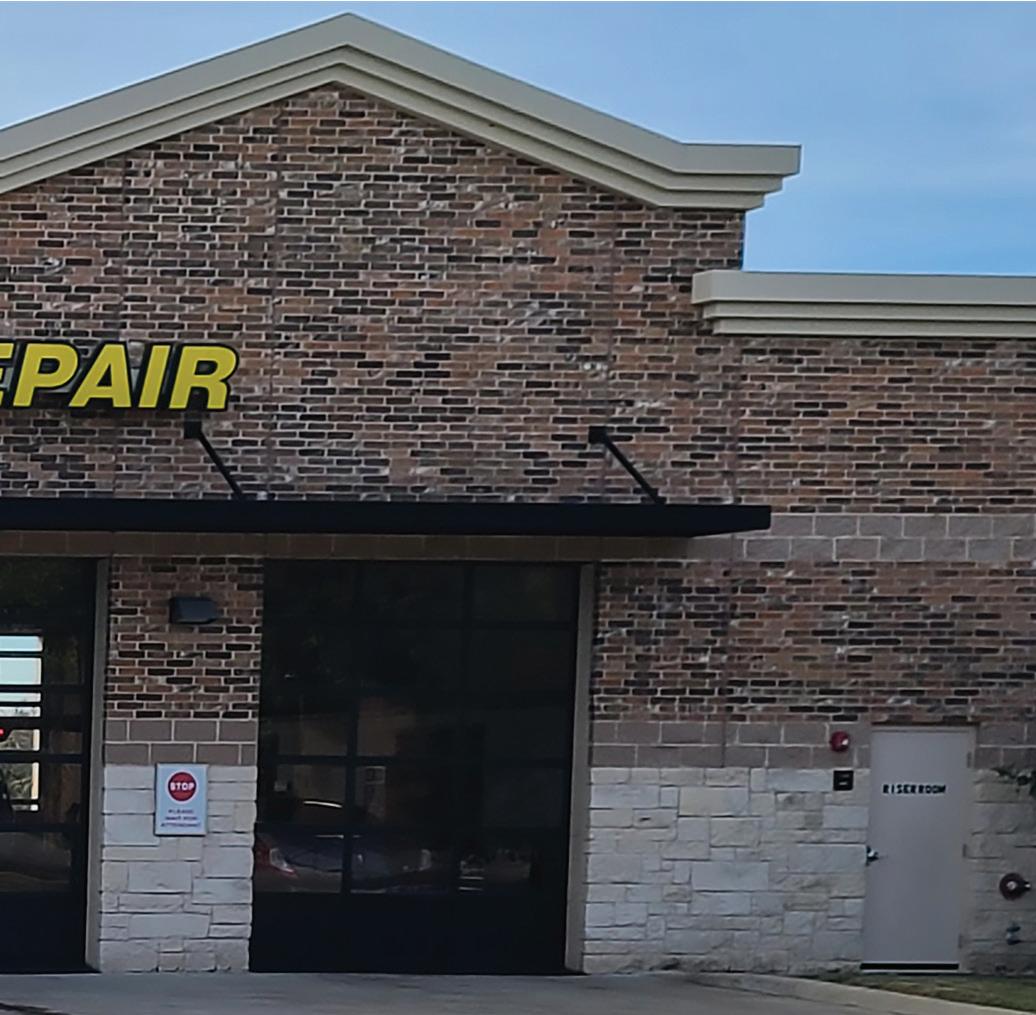









MOVING TO AMERICA at 14 with nothing but her dog and a knack for mathematics, Corrine Hudson has honed many strengths she now uses to lead Kwik Kar Marsh in Carrollton, Texas
by Kacey Frederick
The automotive field has seen individuals from a variety of different industries enter its ranks. For Corrine Hudson, she would spend several years gaining experience in mechanical engineering, consumer electronics, HVAC, and management before she decided she wanted to establish something that was hers.

Now the owner of Kwik Kar Marsh in Carrollton, Texas, Hudson has come a long way from the little girl that she was years ago, with nothing but a passion for math and physics to guide her.
At the age of 14, Hudson left her home country of Madagascar, with her pet dog by her side. It’s common in Madagascar for parents to have their children pursue education outside the country, typically in Europe; but Hudson’s father had connections with people in the States, so she joined her two older siblings in Huntsville, Texas.
Going to high school in Huntsville was an adjustment for Hudson. She didn’t initially know any English upon arriving in America—though

having already known French, learning new languages wasn’t something new to her.
By the age of 17, Hudson was living independently. On the cusp of graduating from high school, she didn’t have anyone guiding her through the school system and was unsure what her next step in life would be. One thing she knew was that she had an affinity for two subjects: math and physics. It was while she was at a high school career fair that she realized what she wanted to pursue after high school.
“I just kind of went and saw these men that talked about engineering, and I was like, ‘Okay, they do math; I guess that’s something that I should do.’ And that’s how it started,” recalls Hudson.
Hudson saw the path she wanted to take. With her older sister living in Arlington, she enrolled in the
mechanical engineering program at the University of Texas at Arlington.
Hudson began an internship with Nokia mobile phones in her senior year and kept on after graduating. She worked for them as a mechanical engineer for nine years before the company went under, leading her to work with BlackBerry, where she took a more managerial role.
Eventually, when that company ran into problems, Hudson hit a wall. Though many of her coworkers moved to California for other opportunities, at this point in her life she had a 14-year-old son and family in Texas that she was not able to leave. For six months, she would apply for jobs, getting every interview she possibly could.
Hudson’s husband, Ryan Mendez, was also working for a company
that wasn’t doing well at the time. But rather than investing his time in finding another job, Mendez and Hudson had an idea to create their own business together that could sustain them.
“We just said, ‘Okay, just in case nothing happens with the job industry, maybe we should start our own business and just take care of our destiny,’” says Hudson.
The couple considered several different franchise business options, but it was Mendez’s father who would direct them to the Kwik Kar brand. He owned his own Kwik Kar franchise many years ago and has since sold it and retired, but he was able to put Hudson and Mendez in touch with Kwik Kar’s original Founder Ray Ellis.
“When we spoke to Ray, it seemed like a good option. Number one, it was almost down the street from where we lived—maybe 15 minutes without any traffic. And it was the perfect location, he’d been scouting it for two years or so,” tells Hudson. “We had that one meeting, and really, that was all it took, and we decided to go for it.”
After reviewing their finances, Hudson and Mendez finalized the purchase of the business in 2014 and build it from the ground up—but not without complications. An increase in rainy conditions due to El Niño caused construction to be delayed, and the business would not open until two years later in 2016.
Fortunately, following the purchase of their Kwik Kar, Hudson received an offer to work for the company Lennox, which would provide a stable income for the family as Kwik Kar Marsh got up on its feet. It wasn’t until a few years later in 2018 that Hudson would come back on, having to assert herself in a work environment she had been largely absent from.
Hudson immersed herself in her work, looking to earn the respect of her employees. She was out on the shop floor performing oil changes alongside her technicians, and worked to gain a state inspector license, allowing her to help with state inspections at the shop.
Having extensive training in managing teams and process development, Hudson had insight into many crucial elements of the business. Before taking her place as an owner and enacting changes, she needed to see how her team operated daily and gain their trust.
“I had to kind of prove myself to them, that, ‘Hey, yes, I am capable,’” Hudson explains. “It was really imperative for me to do that too, because I needed to really understand how things were working from
the shop was for it to run on its own; she didn’t want to have to hold its hand for it to function.
That’s a process that started up top, with management. Hudson found that there wasn’t any real responsibility enforced on the managers of the shop, with them acting more as supervisors and passing on any problems to the owners. She needed a shop manager to handle situations without her help so she could focus on the business’ bigger picture.
Part of that bigger picture has revolved around the core values put in place by Hudson, and is a mantra frequently said in the shop: integrity, respect, and legendary customer service. Realizing the negative association some drivers have towards those in the service and repair industry, Hudson has focused on her shop proving itself as one with principles.
I had to kind of prove myself to them, that, 'Hey, yes I am capable.' It was really imperative for me to do that too, because I needed to really understand how things were working from the bottom up.
–CORRINE HUDSON, OWNER, KWIK KAR MARSH
the bottom up, so that we could definitely see, ‘Hey, this procedure is not working, we need to modify this, we need to modify that.’”
As she integrated herself into the shop, she gradually began implementing different changes to improve workflows, safety, and her staff’s quality of life. The biggest goal she was trying to accomplish with
From Kwik Kar Marsh’s Hood Raiders maintenance course that teaches young people, adults, and senior citizens about vehicle maintenance, to Hudson releasing her own children’s book that explains the functions of a vehicle, her ability to connect with others and address their needs is what has propelled her to success in this industry.

Prioritize team activities
BY ENID BURNS
IT IS FAIRLY COMMON, AND even ideal, for co-workers to develop deep friendships. Sometimes, employers can encourage those relationships with team
bonding activities. Even staff that have developed friendships can benefit from activities outside the workplace to help them work better together.
Team bonding activities such as team dinners, outings, parties, attending or participating in sports events, or other group activities are likely to bring the team closer, and
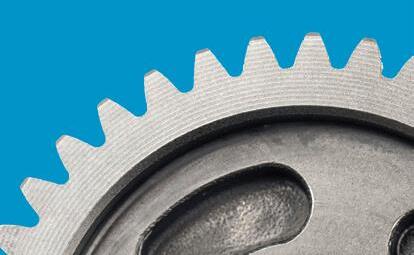
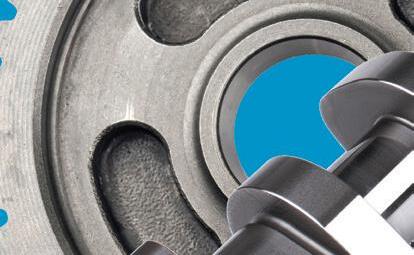























AAPEX is the ultimate destination for automotive aftermarket professionals from around the world. Here, you’ll do more than discover the cutting-edge products and solutions transforming the industry — you’ll see them come to life. From hands-on training and live vehicle demos to expert insights on new-to-market tools, shop management, and emerging trends and tech, you’ll have access to everything you need to navigate the winding road ahead. Join your community in Las Vegas at AAPEX 2024.
IS NOW OPEN. | AAPEXSHOW.COM
help members work together more efficiently by learning more about each other.
A night out with the team offers relaxed atmospheres where co-workers can get to know each other better, let off steam, and have fun outside the workplace. It can also create bonds that help retain employees. Fostering better work relationships can also help with employee retention.
“It creates friends at work—Gallup did a study almost 20 years ago that said having a best friend at work was a key retention strategy—in other words, employees (who) had friends at work stayed at the company longer,” says Chuck Simikian, human resources consultant and trainer at GetHRHelpNow.com. Employee retention has become crucial for businesses, as it has become difficult to find skilled workers, or even job seekers looking to learn a trade.
“Team bonding always helps groups work more efficiently … but it also creates a culture that employees will want to be part of … look forward to going … and increase
retention,” Simikian tells NOLN.
Bonding has benefits, though some bosses might be wary of encouraging such relationships to build.
“It can also backfire if the owner/ boss is a jerk,” Simikian reveals. “The team may bond and work against that person—or support each other to leave and find a better culture.”
In the situation discussed, a boss should decide whether a team bonding activity will serve the shop, or possibly a management seminar to help become a more effective team leader.
Team bonding activities can be as simple as ordering pizza into the shop or going out to dinner. There are, however, valuable experiences in more active events such as bowling or other group activities.
“I would pick something that is an active activity … not passive like a picnic or a dinner,” advises Simikian. “Bowling is a good example. All attention is on the game, cheering each other, nudging people to participate without realizing it is a team building, and having fun.”

Less active gatherings require more prompting to get value.
“Passive activity means sitting there and someone needs to do something to keep the team engaged—if there is tension, it will be a long dinner or other event,”
Simikian finds.
Bowling is a favorite of Simikian, because it’s accessible to most people. “I would think something after hours— something easy that everyone can participate in—bowling is one such activity, almost everyone can bowl,” he says. Bowling is casual. It lets those
participating cheer for each other regardless of the assigned teams and can be an activity where talented bowlers can share tips and others can learn. This practice can be translated to work situations where one technician might share a new skill or help another refine a technique to complete tasks.
Not everyone is immediately excited about after-work activities. It takes time away from personal lives. Take caution when demanding someone to participate in an after-hours activity. It might be necessary to consider closing the shop for an afternoon rather than obligating employees to participate in an evening or weekend gathering.
“If you do it outside of work, and it is voluntary, you cannot enforce participation unless you pay them,” says Simikian. “If you can do it during work hours and shut the business down for some time to do that … great. But my guess is most operations are seven days a week, so that is not feasible.”
Finding the right time to hold team bonding activities can be difficult for a business that serves the public up to seven days a week. If there are distinct teams within the shop, it might be possible to host activities for each team rather than the whole company. It will be important, however, to ensure that no employee or team feels alienated. A company-wide activity across any work teams will help build bonds across groups, not just within them.
Whether a manager or business owner is looking to resolve tension between employees, encourage better working relationships, or reward good work, a team outing will benefit the shop.
“It allows people to enjoy an activity outside of work,” says Simikian.



LUBES ACQUIRED SINCE JANUARY 2014, AND COUNTING! Valvoline™ is seeking single and/or multiple locations performing 7500+ oil changes per year.

When customers ask for a service, it’s time to consider the expense and training needed to implement it
BY ENID BURNS
BUSINESSES SHOULD LIVE BY
the motto, “the customer is always right.” Another good practice today is to listen to customers and identify trends that translate to services customers want and need. In the quick lube world, those might be an offering that extends beyond the basic service of an oil change and fluid check. If you offer the services customers want, they will come for those services and more.
The challenge is to know what those added services are that customers are hoping to get at a quick lube location. The first step may be simply to ask customers and also competitors. You might even get insight from other nearby businesses.
“Our shop adapts to our customer trends and needs simply by listening to our customers,” explains Michael Spier, owner of Fifties Oil Change and Service Center in Tyler, Texas. Spier and his wife and co-owner Charlisha believe customer service
is first and foremost. Listening to customers also helps Fifties Oil Change learn what more they can do for their customers. In some cases, it’s simple customer service that operators can implement.
“Having been in this industry since the late ‘80s, I have seen a sad decline in ‘customer service’ over the past ten to 15 years,” Spier tells NOLN. “Shops and service centers are focused on car count instead of taking care of their guests, customers want to feel valued.”
The Spiers also look beyond their storefront when looking for the best ways to work with their customers and offer the services those patrons need.
“My wife and I pay close attention to businesses we frequent in the area and learn what it is that continues to bring us back to that particular business,” Spier says. “We focus on customer service offered, aesthetics of the business as well as how valued the business makes us feel. We in turn put these same types of policies
in place at our business making sure all our employees know and understand the importance of making the customer feel valued.”
Traditionally, there were and still are a number of ways businesses can determine what services they should add based on customer demand. Talking directly to the customer is the first and easiest. Many quick lube owners also develop a network of shops in the same market and regionally and can draw on those resources to learn of new trends and get examples of how other shops have implemented various offerings. Many shops look to sales reps for information; this resource can help shop owners identify new services to offer. It has been one of the few ways to get information on competing businesses.
Advances in technology may come to the aid of the industry—both for franchise owners and independent operators alike. So ware from Welcomemat and ISI So ware that tracks the quick lube industry may help owners identify trends and become more competitive. The database can report on the activity of the shop and help owners compare it to other shops locally, regionally, and nationally.
The software can show operators car counts for the location to compare with regional and national benchmarks.
“Our industry has not had an objective format,” explains Brian Mattingly, president of Welcomemat.
Operators can look further into car counts and time spent on each car. They can view what services were performed and see other data that can help a shop weigh whether the service is worth offering.
Shop owners can look at trends in the space and view trends on a macro side. “The ability to track and
The smaller operator has fewer resource sets available to them. They might have a supplier they can ask. That’s how the industry works, typically. Ask other operators what they do. It’s generally an open, sharing environment.
�STEVE BARRAM, PRESIDENT OF ISI SOFTWARE
measure, the ability to see someone searching for ‘oil change near me’ and see the transaction happen,” Mattingly tells NOLN.
This level of trend-spotting is something large operators and franchises have some access to; however, many are implementing this new software to obtain more precise data.
“Large customer groups have their department do all of that for them,” says Steve Barram, president of ISI Software. “For other groups, most of them do not know whether or not their 35 cars a day is doing well or not.”
Without such a resource, Barram advises that many independent operators have to rely on an association to offer benchmarks for comparison.
“In our view, this is adding another set of tools that could be useful to you,” Barram says.
In terms of determining services to add, a shop manager can query whether customers ask for new wiper blades as a service, find out what percentage of quick lube locations offer the service, and weigh whether it’s worth offering the service to their customers.
When a shop finds a service a customer needs, it’s still important to evaluate what’s required to meet that request before adding the service to the shop’s offering. Will it require new training and tools? Will the shop need to keep an inventory of parts
for various makes and models? Will enough customers use the new service to make that investment pay off?
A shop might take advantage of the knowledge of a sales rep on the next visit. A supplier has insight into demand for certain parts or services and may be able to offer details on how many shops in the area offer certain services.
“The smaller operator has fewer resource sets available to them,” Barram states. “They might have a supplier they can ask. That’s how the industry works, typically. Ask other operators what they do. It’s generally an open, sharing environment.”
Barram continues, “That may be enough to operate if it’s a low bar to investment. If you have to get a lot of machinery, you may want to do more research.”
A data-driven approach can offer more quantifiable insight.
“Smaller groups, they need it, but they don’t understand how to ask for what they need,” says Barram. “Part of this is putting it on the table in front of them, so they can see what’s available.”
Using a database to learn about trends can offer advantages over traditional outlets.
“Being able to see and understand trends within an organization, leveraging the tools, needing to increase car counts, reduce churn and attrition,” says Mattingly. “Not only can you learn from the benchmark, all those things are based on objectives as an operator.”
Even with all the data at a shop’s fingertips, listening is still one of the most important resources an operator has.
“Our shop has adapted to customer value by listening to our customers,” Spier says. “We focus on what makes us happy at other businesses and implement the same here at our business.”
BY DALE SMITH, TRAINING PROGRAM MANAGER & BGU INSTRUCTOR
Boost your quick lube shop’s profits with these five proven steps:
1. Attract more customers by effectively promoting your preventive maintenance services.
2. Ensure every customer experience is smooth and efficient with a clear, up-to-date process.
3. Provide comprehensive training for your managers, advisors, and technicians to enhance their skills and service quality.
4. Keep your team focused and productive by consistently monitoring performance and setting clear targets.
5. Build loyalty and retention by taking the time to educate your customers about the importance of regular maintenance.
Many customers aren’t aware of the benefits of regular automotive maintenance beyond oil changes. Society focuses on fixing problems rather than preventing them, like refilling tire air when they’re low or replacing wiper blades when they fail. This mindset means there’s a lack of understanding about regular maintenance.
With car owners keeping their vehicles longer—often planning to drive them for 10 to 12 years—there’s a growing need for preventive care. According to a 2019 report by IHS Markit, the average age of vehicles on the road is 11.8 years. Preventive services are needed more than ever, but customers are unlikely to initiate that conversation. Educate this growing demographic.
Use a variety of marketing techniques to raise awareness. Some customers respond well to eye-catching printed materials like menus and pamphlets. Others prefer digital engagement through YouTube videos, QR codes, and augmented reality. Provide a mix of materials to help your customers understand the importance and benefits of regular maintenance.
Like a waiter presenting dessert options, an advisor shows the customer the available services and guides them toward the right ones for their vehicles. A clear process ensures that all appropriate services are offered to each guest. Following a step-by-step process allows an advisor to navigate each stage of the customer interaction efficiently.
Start with the customer’s first point of contact: the service bay–where the guest experiences a quick inspection and a follow-up of recommendations. This inspection addresses immediate recommendations and a quick check of the vehicle’s maintenance history.
The final step is the active delivery process, which involves setting up the next service appointment, reviewing the services provided that day, introducing relevant protection plans, and addressing customer questions or concerns. The last thing a customer should hear is gratitude
for their business. By following this advisor process, you will systematically present all appropriate services and take advantage of every sales opportunity.
Knowledge boosts productivity and increases profits. Provide comprehensive training for your managers, advisors, and technicians to enhance their skills and service quality.
Conduct interactive demonstrations and practical hands-on service drive training at your shop. Role-playing scenarios can teach advisors how to present services and overcome objections, while technicians learn to use the necessary tools and machines efficiently.
Service advisors and technicians can also benefit from online training modules. Invest in brief video courses that review methods for performing various services, offer guidance for optimizing sales opportunities, and provide tips for educating customers. Some modules include quizzes, printed certifications, and supplemented in-person training. These options help employees track professional growth.
Success and profitability hinge on accountability, ensuring everyone consistently performs all required steps. Set clear, attainable sales and performance goals, such as offering a service menu to each guest, and review them frequently to ensure adherence to these standards.
Provide necessary training and follow-up for employees, addressing any personal or technical issues as they arise. Hold each employee accountable for their performance, but keep the focus on the goals, not the staff.
Address process deficiencies by reviewing all steps to identify and correct inadequacies, and encourage improvement. Role-playing is effective for discovering and practicing solutions. Always set SMART goals to ensure accountability (Specific, Measurable, Attainable, Relevant, and Timely). Have management review performance standards at designated intervals.
Customer retention is the most reliable way to ensure profitability. If existing customers are lost as quickly as gained, revenue won’t increase. Dedicate time to educating customers about the benefits of preventive maintenance and relevant protection plans.
Discuss timelines for future services. Effective planning will plant the seeds for future growth. Time is our most precious resource; when we share it, we show that we care. When guests feel valued and cared for, they become loyal to your shop and may even request specific service advisors by name. Foster good communication to build these lasting relationships.



Success doesn’t mean working yourself or your employees to death
BY PETER SUCIU

IN JAPAN, “KAROSHI” HAS been seen as a very serious issue. It literally means “overwork death,” as some employees feel so duty-bound to burn the midnight oil and then some that they essentially work themselves into an early grave. There are reports of workers never stepping outside during daylight hours. Some workers are now putting in so much time at the office that they die from heart attacks and strokes related to stress brought on by pressure from their jobs.
A similar but only slightly less significant problem is job burnout, which can include being worn out physically, emotionally, and mentally. It can also result in workers feeling useless, powerless, and
empty—while it can raise the risk of depression, and lead to serious health problems.
For small business owners, the need to be successful can lead to job burnout, and it can impact their ability to succeed. It is therefore important to understand what brings on burnout and more importantly how to address it.
High worker turnover and the challenge to find employees have continued to plague the entire service sector. Some businesses have been forced to cut hours simply because they can’t find employees. At the same time, high inflation has impacted small businesses—and as
a result, many owners and operators increasingly feel they need to put in more hours to remain profitable and to keep up team morale. The problem is that by working so hard, the shop’s bottom line and the general demeanor of the business can suffer.
For Jud Cook, owner of three Christian Brothers Automotive franchises in Florida—which each average around 120 cars weekly— burnout is something he and his team often face simply because everyone needs to do more. He tells NOLN that there are several factors leading to burnout among shop owners and managers.
“I think the number one factor is trying to control every aspect of the business,” Cook warns. “This can be due to ‘under-delegation,’ too big of an ego, or an over desire for instant success.”
As noted, the issue of trying to gain that instant success can impede it. Burnout can also impact employees and can be the result of too many hours on the shop floor doing the same tasks. This also results in a lack of productivity but can also hinder a shop’s reputation. Fatigued employees can make mistakes— which isn’t going to result in repeat customers—while a stressed-out manager won’t help the shop’s work environment in the least.
Addressing burnout is easier said than done, in part because it can be hard to spot it. That is especially true as a shop begins to succeed, which can be quite rewarding. Quick success can lead to burnout.
It is often said if you love what you do, you never work a day in your life—yet, it needs to be remembered that even if you love it, some managers and shop owners also need to realize that there are only so many hours in a day that can be spent
working. Downtime is important to stay refreshed, which can actually increase productivity.
In other words, spending 60 hours a week could be far less effective than working 40 hours if the quality of the work suffers. Moreover, the business shouldn’t become an owner’s or manager’s life. Cultivating interests beyond the shop should be encouraged.
“We have to keep and nourish the proper perspective,” Cook continues. “If we don’t have a perspective/ identity outside the shop, we are probably not going to be the best we can be. Our actions and behaviors will be off because we aren’t seeing our lives through the proper lens.”
The same holds true for employees so that they’re not just working long hours and living paycheck to paycheck.
“You need to make sure you know what makes your teammates ‘tick,’” suggests Cook. “Are they active at a place of worship? Do they have small children involved in activities? Are they really into a cause or mission? Give them time to participate. Find opportunities to sew into their causes and discuss their life goals with
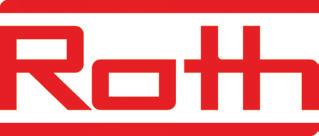
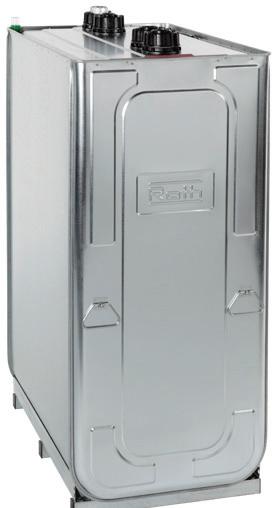
them—those things that are more important to them than the shop.”
Likewise, as a business grows, it is important to relegate some responsibilities. That can include grooming a trusted employee to manage when there are multiple shops. No one can be in two places at once, after all.
Addressing burnout can be as simple as listening. That can include hearing what employees are saying—really saying. Younger employees, especially those who have cultivated a work ethic, are likely to complain a lot. But if the usually cheerful and eager workers are starting to have a sour demeanor, it could be that they’ve spent too many hours on their feet or in the pits and are feeling it!
Likewise, shop owners need to take a listen to themselves. That can include any health warnings that can include trouble sleeping, unexpected pains, or other ailments. Your body may be telling you that you’ve worked too many hours. Fatigue can’t be addressed by another cup of coffee or by taking another painkiller.
“Of course, you should listen to your body and take care of yourself physically,” said Cook. “Emotional and spiritual factors are just as important. Our teammates and our families are going to remember how we made them feel. It is difficult to make people feel great if we aren’t emotionally or spiritually healthy.”
All shop owners want to succeed, but that doesn’t mean being a slave driver who pushes the employees too hard, an unhappy work environment will be noticed by customers who will simply take their business elsewhere. Nor does success come from being a martyr whereas an owner you’re the first in the door in the morning and the last out every night.
Success isn’t worth one’s health, and it is never worth being a victim of “karoshi.” There is no badge of honor in working to death, nor should the shop ever come before family and friends.
As Cook notes, “Let’s face it, after we retire or sell our shops most people aren’t going to talk about the long hours we put in or the efficiency we achieved in our bays.”
• Designed to store diesel and bio fuels, motor oil, used oil, ATF, DEF and heating oil, class II and class III combustible fluids
• Outer tank holds 110 percent of inner tank
• Up to 50 percent lighter than conventional steel tanks
• Easy to install and compact design
• Exceeds industry standards/UL2258 Certified
• Compliant with NFPA 30/30A
• Low-cost
• 30-Year warranty
• Leak-proof and will not corrode
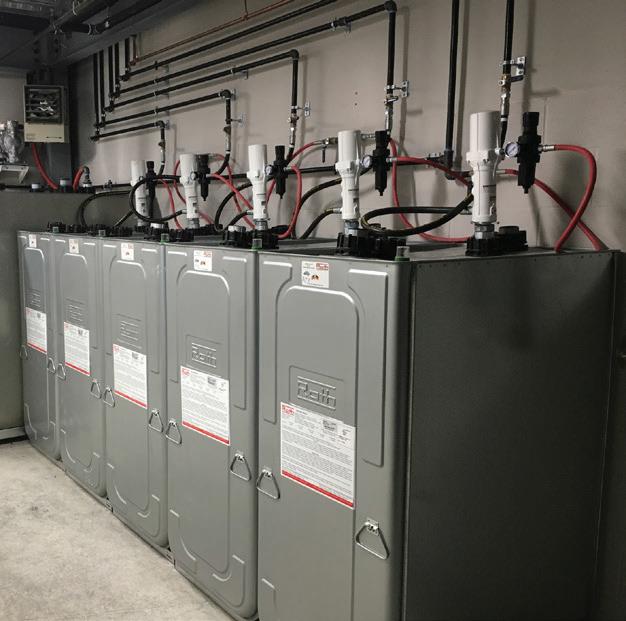

BY AMBER KOSSAK, CEO OF SOLID START
A vital component in life is having good communication skills. If we have poor communication, it can cause tension, mistrust, misunderstandings, frustration, and strained relationships. However, good communication is fundamental in having effective outcomes, both inside and outside the workplace.
Though we can obtain more effective results by improving both our speaking and listening skills, I am going to focus on listening.
In business, when managers are poor listeners, it undermines a team’s morale. It makes them feel that managers don’t care about them. When a staff member is a poor listener, it can undermine a manager’s confidence in the team. In short, listening is an essential skill to master in whatever role you play.
Listening is not as easy as it may seem. In the late 1950s psychologist Carl Rogers coined the term “active listening” rather than locking on to the words being spoken, we need to use our perception and try to understand the other person’s point of view. Therefore; “active listening” involves intentional focus and undivided attention, which is not easy today.
Whether we are the one speaking or listening, there can be a variety of barriers with communication. First, we might have our own inner distractions, a meeting at work, a deadline, or family life. We may even be distracted by our internal thoughts: “Where is this conversation going? Is this really important? I have a lot to do!”
REMEMBER: “Listen with the intent to understand, not the intent to reply”
In many conversations there may be no listening at all as everyone thinks about what they are planning to say next. Think about this, when we take the time, little to no distractions and demonstrate “active listening”, we are helping the other person. Be kind! You might not know what the other person is going through.
Listening has benefits for our customers – creating a value & respect! Sometimes non-verbal facial expressions or body language can interfere with the message being communicated. Are you portraying with your facial expression or body language a closed-door policy? Communication comes in all forms. If we do not show we are ready to listen, how do our customers feel? How do our employees feel?
Listening helps affirm another person’s value. It shows respect. Being a good listener builds trust and helps the other person feel more comfortable knowing that you understand.
Failure to listen can have unintended consequences!
Listening is key to understanding. This is why good listeners make better decisions. What’s more, people have respect for you when you are an “active listener”. Remember it creates value.
• Be aware of your non-verbal communication. (Distractions) This could be looking repeatedly at your phone or computer monitor while engaged in conversation. Don’t do it.
• Seek clarification of what the other person is trying to say. Ask questions if necessary, never assume you understand. If you are receiving direction, make sure you understand the end goal. Confirm what you’ve heard by relating in your own words how you understood the conversation. It’s like a handshake. This will lower the anxiety level when both parties feel affirmed and on the same page.
• This is a big one. Train yourself to not emotionally engage or respond until you fully understand what is being said. Also, make sure you withhold judgment until all your questions have been answered.
With customers, it is important to always strive to make them feel that you are on their side. You can do this by listening, building trust, lowering their anxiety. We all know this but it is a good reminder, make your customer happen and you will have a customer for life.
We mentioned communication as being a vital part in life. Without listening you cannot truly communicate. Of course we can get through life without being a good listener but if we want to be better than we were yesterday then we need to “Listen with the intent to understand, not the intent to reply”.
Amber Kossak is the CEO of Solid Start, manufacturer of True Brand Products. She has been in the automotive industry for almost 30 years and is serving on the AOCA board of directors. She can be contacted at kossak@solidstart.com. For more information please visit solidstart.com.
A continuation of last month’s column about strategies for operational issues
IN THE LAST ARTICLE ON THIS SUBJECT, I discussed how some of the outside influences on your business can hinder you. I also pointed out that it is not always bad management that is bringing you down.



Adam Tatum is director of operations for the Virginia Group, a Jiffy Lube franchisee with 11 locations.
He has over a decade of experience in the industry with a proven track record of building customer counts and sales, as well as using innovative ways to bring a new look to the automotive field for both the customer and the employee. Performance comes from growing your business through people.
However, there could be some internal changes that can be made to also improve the viability of your location. It is a point that I have to make that you should already know: Your customer is changing. What we used to see in loyalty from certain generations is being eclipsed by the newer drivers—and what you will find is that the way that you used to do things is not what is going to drive them to you.
I have kids in two of the newer generation subsets. One of these kids is about to be driving, so I can quiz him on cars. Guess what? He does not know much of anything now. He will learn soon, because his first job will be in one of my locations learning all about them. When many of us started out (yes, I am aging myself), we knew how to pump gas, check fluid levels, understand what lights on the dashboards mean, and—amazingly—how to change a tire. This is not likely to be the case with the newer generations.
These drivers are instant gratification drivers with shorter a ention spans. These are not my words but are taken from other generalizations in comparable stories. They play video games, have high-speed internet, and anything they want to know can be found with their thumbs on a tiny handheld phone. (Admit it, your 6-yearold can whiz through them faster than you!) So, how do we a ract them to our locations?
Remember the above characterizations— they can have anything in an instant. Where some drivers cared about the extra touches like vacuuming, air fresheners, and more, these newer drivers are all about speed and multipurpose. They believe that they have a hundred things to do and are losing daylight if they must sit around for a 30-minute service.
So, speed of service is key. Can you do it faster than your competitors? The current model for Take 5 and Valvoline is this
stay-in-the-car service. They do not offer the full array of services that an Express or a Jiffy Lube would (though they are starting to offer the stay-in-the-car service), so it does have its pluses and minuses. Do you have the team in place to provide such a service? Do your procedures even allow you this option? Look at how you are currently operating and tweak it. Can I do this in a slightly different order and drop my time by five minutes? Or can I give options for services that you used to do automatically for that customer on the go? One example would be to set up an express service lane that boils down to just the basic oil change.
So, we know we must be fast. However, remember that these customers are experts in multitasking. This is where you are at the advantage Express and Jiffy Lube! They want to go to one place and get everything done at one time. They are on the go, and making multiple stops to take care of maintenance is not on their list of priorities. For you to take advantage of this, look at offering a few services.
It may be an upfront cost for machines, but being able to offer tire services is a huge thing. This is especially true if you are also in a state inspection state, as that is almost always an automatic sale, but it is not that advanced that you need to go. If you are not offering fluid exchanges or batteries, these could be add-ons that help you generate a few more dollars a day.
Implementing new services or speed may come with a little adjustment for your teams and your long-time customers, but there are benefits for them as well. You would be offering a quicker service and more options than you did in the past.
You will generate a lot of word-of-mouth advertising when these customers remark on this with others: “Hey, I thought you were going to be an hour getting work done.”
How many times has someone heard that? It would be great to hear someone say, “Oh man, they are so much faster than they used to be. You should go check them out now!” In. Out. On their way!
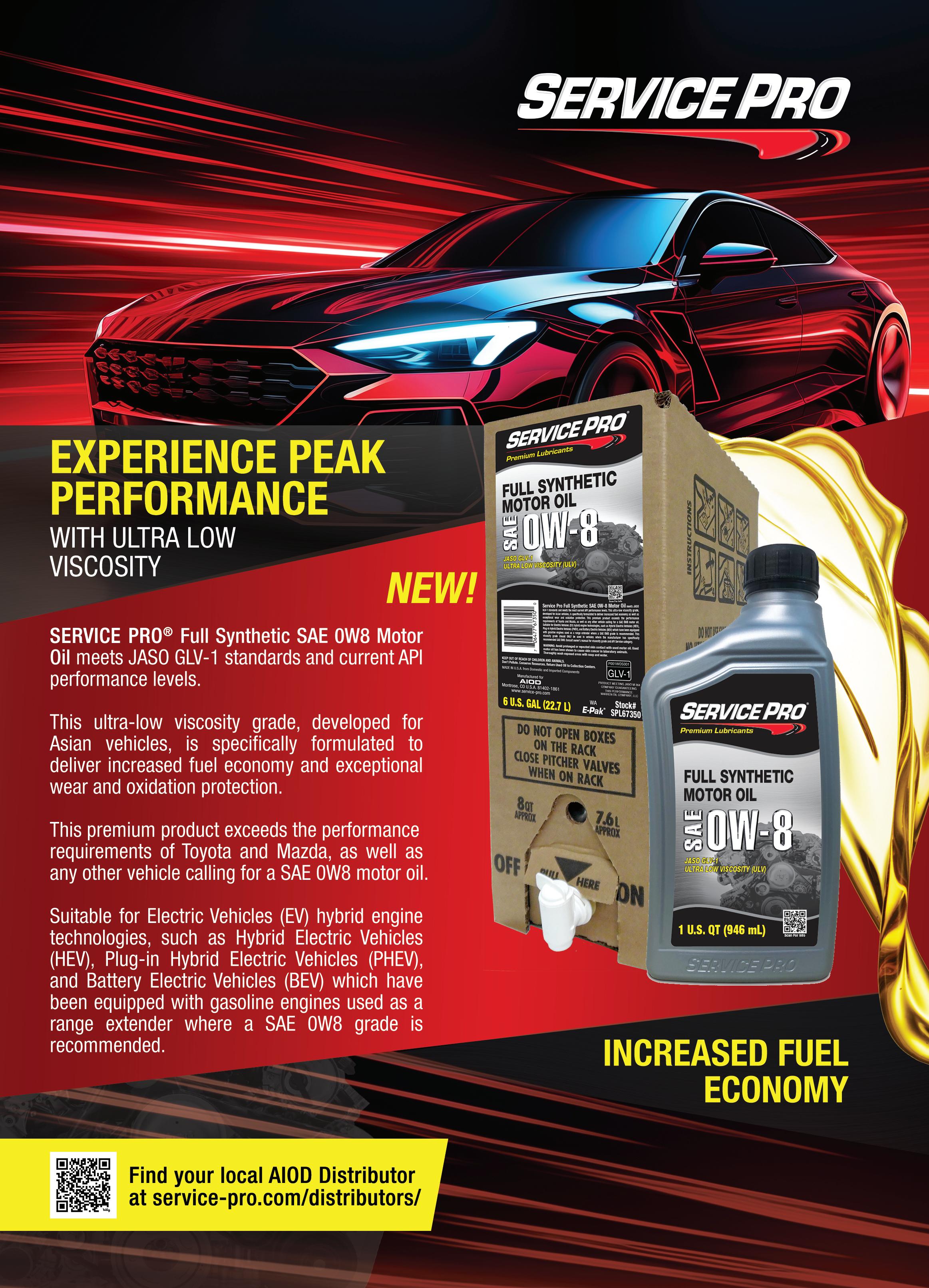

Fully-Integrated Fleet Card Payment Processing
Quickly and Seamlessly Accept Fleet Cards with EMV Certified Payments and Tap-to-Pay from ISIPay™

ACCEPTED FLEET CARDS
` Wex/Wright Express
` Voyager
` Fuel Man (non-fuel only)
` Visa Fleet
` Mastercard Fleet
` FleetOne
` FleetCOR

